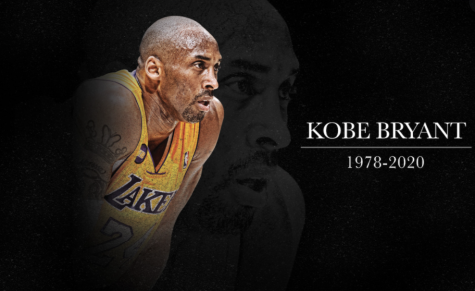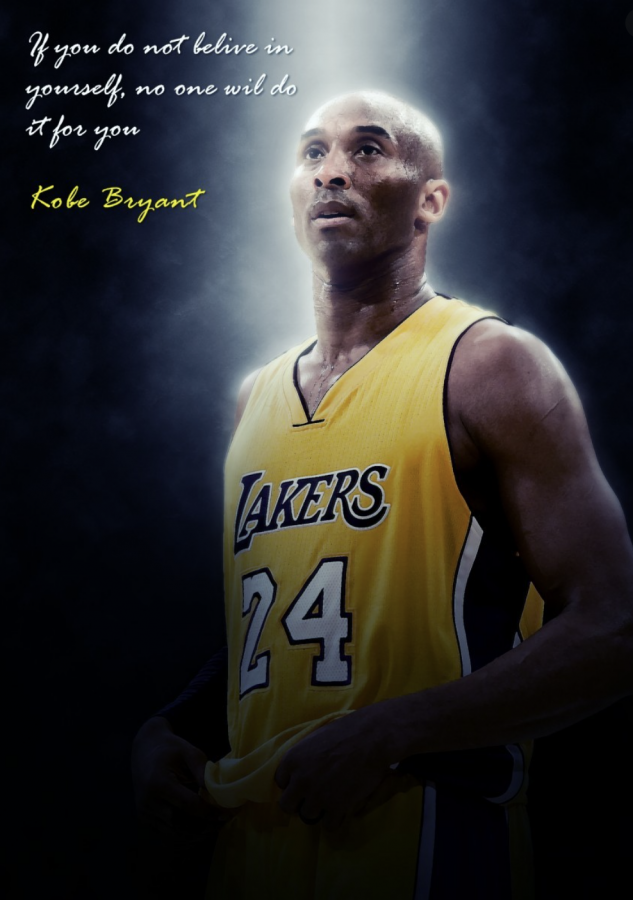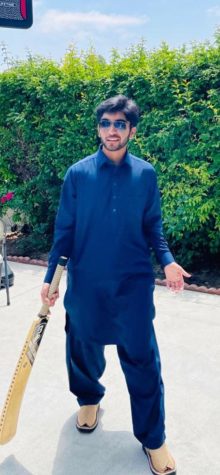In Memory of the Black Mamba
April 18, 2021
There are few moments in history where when you look back at them, you remember exactly where you were, what you were doing, and what was your reaction to what was happening. The unprecedented and devastating death of our beloved Kobe Bryant happened to be one of those moments. On January 26, 2020, one of the greatest sports icons the world has ever seen sadly passed away in a helicopter crash, along with his loving daughter, Gianna, and 7 others in Calabasas, California. Now, this article can be about what happened after the events of January 26, how memorials were held, tears were shed, respect was shown, but I am not going to talk about that. I want to talk about one thing and one thing only. Legacy. And if there is one person whose legacy will forever be with us, it is the legacy of Kobe Bryant. The Mamba’s death left us all devastated, but motivated to carry on. Carry on the legacy of one of the greatest players to ever grace the basketball court. But first, what was that legacy?
Kobe Bryant was born on August 23, 1978, in Philadelphia, Pennsylvania, to Joe and Pamela Bryant, where he was the youngest of three children. Growing up, Kobe loved basketball and coincidentally, the Lakers. His family moved to Italy as his father went there to continue playing professional basketball. After coming back to the states at 13, Kobe started high school at Lower Merion High School, where he had a spectacular high school career, enough to make him a high-prospect in the NBA draft. Bryant then went on to declare for the NBA draft, where he was selected at #13 then traded by the Charlotte Hornets to the Los Angeles Lakers. From there started one of the greatest careers, in basketball, in the history of the game.
In his early years in the League, Kobe showed his spark as a young guard, being impossible to guard, exciting the Lakers. He had a phenomenal rookie year, where he found himself in the All-Rookie Second Team, the youngest Slam Dunk Champion and starter. Bryant says that he learned a lot in his first couple of years, especially from legends such as Byron Scott, Robbery Horry, and others. In 1999, the Lakers got coaching legend Phil Jackson, who had just come from coaching the Michael Jordan Bulls. Jackson helped implement the triangle offense used so well in Chicago, which helped Bryant and big man Shaquille O’Neal dominate the game. Kobe’s stats, playing time, and effort rocketed, helping to lead the Lakers to three consecutive championships. However, Kobe had not just gotten the league’s attention through his success, but his hard work after his failures as well. Multiple sources give their stories of how Bryant always had a different mentality when attacking the game, where he always wanted to be the best. ESPN sports analysts and talk show host Max Kellerman, says it best when he says that nobody can ever be Michael Jordan, but Kobe Bryant is the first person to ever try to be and almost was. In the season after their three-peat, the Lakers fell short to the Detroit Pistons in the Finals, a difficult year as the team faced new adjustments and a shaky regular season, both on and off the court.
In the next coming years, though Kobe didn’t win any championships, he was in his prime and undoubtedly the best player in the NBA. During this time, some highlights of his excellence were his 81-point game versus the Raptors in 2006, a historic and record-breaking game, as Bryant achieved the second-most points in a game in NBA history. Scoring was who Kobe was, so I could write for pages all the 50 and 60 point games he had. Although these years were tough in terms of not winning championships, it truly helped transform Kobe into the leader he needed to be and truly made him into the Mamba, describing himself as a “killer” on the court. He became a leader and bonded with many players on the Olympic Basketball Redeem Team. After lots and lots of speculation on Bryant being traded, Kobe and the Lakers showed their amazing and physical prowess to the game, finishing with a 57-25 record, a MVP on Bryant’s shoulders, 1st in the conference, and on their way to the NBA Finals. However, they lost to their long-time rival, the Boston Celtics, in six games. This loss was devastating for Kobe, but drove him and sparked a flame like never before. By now, the Lakers had become the kings of the fastbreak offense and nobody could stop them. The Lakers went on to win back-to-back championships, where Kobe Bryant was Finals MVP in both, with the help of Hall of Famer Pau Gasol.
In the last segment of Mamba’s career, he chased a 6th championship, but unfortunately couldn’t, even with star players such as Dwight Howard and Steve Nash. From there, Bryant faced injury-plagued years, where he faced an Achilles injury, which is one of the worst injuries you can have in the game (along with an ACL). The end looked like it was near, but not for Kobe. Though the Lakers didn’t do well in Kobe’s last season, Bryant pushed and pushed, where he scored 60 points in his last game, becoming the oldest player to do so. With that, Bryant had cemented himself in the list of all-time greats, and especially in the list of all-time hard workers.
After his retirement, Kobe showed his Mamba Mentality off the court as well, winning multiple awards for his books and especially film, Dear Basketball, opening the Mamba Sports Academy, coaching his daughter’s basketball team, motivating the next generation, and most importantly spending time with his family. The unexpectedness and shock of Mamba’s death still resonates today. Kobe showed what it means to play this game of life, both in what we do and how we do it. His legacy wasn’t his championships, Finals MVPs, or other accolades. It was the mentality to always give it your all and be the best at what you do. Kobe will truly be missed, but as Lebron James said, “In the words of Kobe, ‘Mamba Out,’ but in the words of us, ‘Never Forgotten.’”


